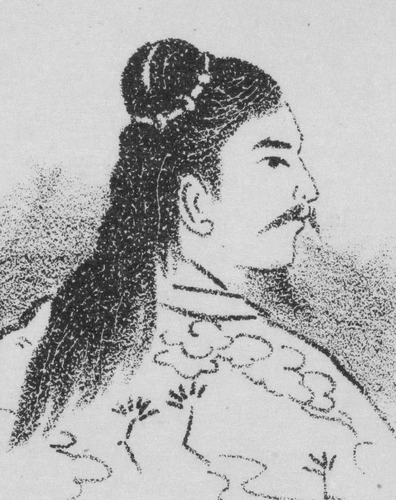
Mimakiiribikoinie (148 - 9 January 30 BCE; 御間城入彥), better known by the title Emperor Sujin (崇神天皇), was Emperor of Japan, reigning from 23 May 98 BCE to 9 January 30 BCE. He was the second son of Emperor Kaika. His existence is disputed and he is regarded as a legendary figure. As such, his biography is marred with exaggerated details and even outright fiction. In his reign, he promoted agriculture, saying of it, "Agriculture is the central foundation of an empire, for it is what the people depend on to thrive."
He was said to be precocious, possessing a talent for making thoughtful plans as a child. He grew more intelligent as he aged. On May 23, 98 BCE,[DNHS-1] he became Emperor of Japan after his father died. In his fourth year of rule, he issued an edict, stating, "When my royal ancestors, the heavenly sovereigns, were to receive the imperial title with glory, would they ever dare act solely for themselves? Through ruling men and spirits, through governing the empire, they were therefore able to extend their magnificent achievements in their generation and spread their perfect virtue in their time. Now I have received the great inheritance, loving and nourishing the common people. How should I honor the legacy of my royal ancestors, prolonging and preserving our boundless fortune? You ministers and officials, do exert yourselves with absolute loyalty and fealty so that we may together maintain order in the world. Is that not proper?"[NHSK-5] He died on January 9, 29 BCE, at the improbable age of 118. He was succeeded by his third son, the future Emperor Suinin.[DNHS-2]
East Asian Calendar Converter (hyperlink)
[DNHS-1]: The History of Great Japan (chapter 1) (hyperlink)
[DNHS-2]: The History of Great Japan (chapter 2) (hyperlink)
[NHSK-5]: The Chronicles of Japan (chapter 5) (hyperlink)